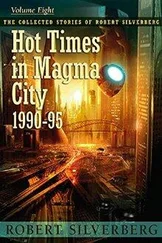London dispatched a commission to investigate, the first of many that would wrestle with the Palestine problem. Essentially, it addressed Arab grievances and recommended reining in Jewish immigration and restricting land purchases. It was a vain proposal. Not only would it prove unworkable. The British had revealed that their commitment to the Balfour Declaration was faltering and from now on Jewish suspicions and disillusionment would grow.
In the meantime, though, it was the Arabs who were causing the trouble. MacMichael would be taking over in the middle of a full-blooded uprising. Hitler’s rise to power in Germany had triggered a new Jewish exodus. In 1935 more than 60,000 Jews arrived in the country, and more were trickling in illegally. There were now about 430,000 in Palestine – roughly a third of the total population. 3It only needed a spark to ignite Arab anger and that came in April 1936 when the murder of two Arabs by Jewish extremists in retaliation for the murder of two Jews sent violence rippling through the country.
Arab bands, reinforced by mercenaries and sympathizers from Syria and Iraq, attacked Jews, policemen and soldiers. They felled telegraph poles, ambushed cars and blew up railway lines and the oil pipeline that ran through Palestinian territory on its way from Mesopotamia to Haifa. A general strike lasted for six months. The rebellion was coordinated by the Arab Higher Committee, a collection of notables dominated by the Mufti. Their demands were simple: an end to Jewish immigration and land sales and a representative council that would pave the way for an independent Arab state.
London responded with another commission, led by Lord Peel. It arrived in October 1936 and there was a lull while it went about its work. Its report was published in July 1937 and came up with a drastic but inevitable-seeming solution – the partition of Palestine into an Arab and a Jewish state. The Jews gave qualified backing to the plan. The Arabs rejected it outright and now, as the security arrangements for MacMichael’s onward journey to Jerusalem made plain, the revolt was back in full swing.
Just before ten o’clock the High Commissioner’s party boarded a special train. The authorities were expecting trouble. As the engine steamed slowly away from the harbour, it was preceded by a flatbed trolley, mounted with a machine gun manned by soldiers of the Royal Scots Fusiliers. Others stood guard at regular intervals along the track. For the first few miles three Royal Air Force aircraft weaved in formation overhead.
No matter how fiercely the rebellion burned, it was clear that the Jews were in Palestine to stay. As the special train passed Tel Aviv and clattered onto the spur line that climbed up to Jerusalem, it came within sight of the settlement of Rehovot. It was the home of the scientific research centre run by Dr Chaim Weizmann, the Russian-born Manchester University chemistry lecturer who was Zionism’s most effective lobbyist in Britain and the president of the World Zionist Organization. A few days earlier he had been visited by ‘William Hickey’ of the Daily Express – the pseudonym of the influential boulevardier Tom Driberg. The journalist had been impressed by the ‘sun-bathed orange groves, orchards, Riviera-like gardens, the white-walled Institute where seventy scientists from many countries are working, the garden city beyond …’ 4In the subsequent piece, Weizmann had delivered his judgement on the partition plan. He was prepared to accept it ‘on the “half a loaf” principle’ and believed that ‘with slight improvements, most Jews’ would do the same.
Even so, he made it clear that the territory allotted to the Jews was not nearly big enough to absorb Europe’s persecuted masses. ‘No territory you could produce would hold them,’ he said. ‘There are five or six million of them – in Germany, Hungary, Romania, Poland. You can’t fight a tidal wave. All we can do is salvage the children. Concentrating on young Jews, I anticipate bringing one and a half million of them into Palestine in the next twenty years.’
When Driberg suggested that this was fanciful, Weizmann retorted: ‘It may be sentiment but we have converted the sentiment into dynamic power.’ It was the English, he said, who were sentimental – ‘sentimental about the Arabs. They admire picturesque inefficiency. It is the tourist attitude. We may be spoiling the landscape but five years ago all this was bare desert.’ Driberg was convinced. ‘It is this spectacular success of the Zionist colonisation,’ he concluded, ‘that has made the clash acute. The Arabs are in retreat from the land.’
It was true that many British officials had a soft spot for the Arabs, a combination of affection shot through with condescension. Before taking the job, MacMichael had sought the counsel of Sir Robert Brooke-Popham, until recently commander of the Royal Air Force in the Middle East. He had given freely of his advice. ‘One sees the Arab seated under a tree and playing on his pipes to encourage his sheep and goats to graze,’ he mused. 5‘One goes down to Tel Aviv and one sees all the bustle and blatancy of a mushroom-like town. From the purely economic point of view, far more wealth is being produced and circulated in Tel Aviv than by any number of Arabs playing to their goats. But one may be permitted to wonder which method really does more ultimate good in the world, and I fancy the Arab is feeling the same sort of thing.’
His paternalistic sympathy was matched with a Victorian belief that to spare the rod was to spoil the child. ‘As of course you know, what the Arab appreciates is swift punishment,’ he wrote. ‘Any delay he regards as weakness.’
MacMichael did know. His high, donnish forehead, receding chin and quiet manner disguised an outlook that was as hard and sharp as flint. Familiarity with colourful, oriental cultures did not incline him to leniency towards colourful, oriental rebels. He had a strict sense of racial hierarchy with the Sudanese of the Upper Nile who lived in a state of ‘semi-simian savagery’ at the bottom and the British at the top. MacMichael, wrote a historian of the Anglo-Egyptian Sudan, combined ‘great intelligence, extensive study and experience [and] a commanding ability in debate’ with ‘a rigidity of standards, and a public presence of icy reserve’. 6He brought to every problem ‘logic, orderliness, orthodoxy’ and a keen awareness of protocol. The daytime temperature in Khartoum averaged 99 degrees Fahrenheit, yet he insisted on his officials being properly attired in jackets and ties when dealing with natives, for ‘any informality of dress and manner … might be resented and undermine authority’.
MacMichael’s orthodoxy was one of the main reasons he had been chosen for the Palestine job. With the Arab revolt showing no signs of abating, London needed a man who could be relied on to follow instructions and take hard measures. That had not been the style of his predecessor. Wauchope was unpopular with his officials, the military and ultimately his chiefs back in London, whose belief that he was too soft on the rebels had hastened the decision to retire him.
As Ormsby-Gore made clear in his welcoming letter, there could be no question of backing down in the face of force. ‘We have to remain in Palestine for strategic reasons and for reasons of political prestige,’ he declared. He did not hide from MacMichael his opinion of Wauchope’s administration, which had been ‘weak and poor to say the least of it’. The situation required ‘firm’ as well as ‘wise’ handling.
A tougher strategy against the rebels was already evident. During Wauchope’s absence on sick leave his Chief Secretary, a genial, indiscreet but above all efficient Cornishman called William Battershill, moved to impose some grip. The government approved his request for a crackdown and on 1 October 1937 those members of the Higher Committee who had not already fled were rounded up, put on a British warship in Haifa and deported to the Seychelles. The Mufti, who Battershill discovered on first greeting him ‘had a hand like a piece of damp putty’, 7took refuge in Jerusalem inside the Haram al-Sharif. The compound enclosed the Dome of the Rock, the shrine that marks the spot from where Mohammad made his night journey to heaven on the white steed Buraq and a place so bristling with religious sensitivities that it was a no-go area for British hobnailed boots. From there he soon escaped, disguised as a woman by some accounts, and made his way to French-controlled Lebanon, to carry on agitating.
Читать дальше












